Recent Blog Posts

History of the Federal Underground Storage Tank Program
The Federal Underground Storage Tank Program turns 40 this year. Let’s take a look back at the program’s beginnings, its changes and accomplishments along the way, and where it stands today. For help with UST installation, removal, servicing, or site remediation in New Jersey or Florida, contact the experts at Lutz Tanks for quality… Read More »

UST Regulations: Then and Now
Underground Storage Tanks were first regulated by the Environmental Protection Agency (EPA) in 1988, and while a lot happened over the years, no significant changes to those original regulations were made until 2015. Those 2015 regulations are the ones we work under today, but to fully understand their import, it’s helpful to compare them… Read More »

What Is an Underground Storage Tank (UST)?
When it comes to fuel storage, underground storage tanks (USTs) play a crucial role in countless locations across the country, offering convenient ways to store and deliver gasoline, oil, industrial chemicals, and other liquids without taking up valuable real estate surface or creating risks of explosions and other aboveground hazards. Because of the potential… Read More »
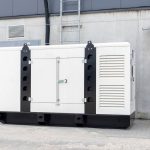
Aboveground Storage Tank (AST) regulations for Emergency Power in High-rise Buildings in New Jersey
New Jersey law imposes strict guidelines when it comes to emergency power systems in high-rise buildings, which are critical for ensuring the safety and security of building occupants during power outages. Those strict requirements cover Aboveground Storage Tanks (ASTs) that store the fuel used to power these systems, including their installation, operation, maintenance, and… Read More »

What Are the Advantages of Underground Storage Tanks (USTs)?
Underground storage tanks (USTs) are a significant component in various industries, particularly in the petroleum and chemical sectors. These tanks are essential for storing a wide range of substances, from heating oil and fuel to hazardous materials. Their underground installation offers numerous benefits that surface tanks simply cannot match. This blog post delves into… Read More »
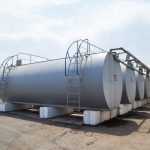
The Advantages of Double Wall Aboveground and Underground Storage Tanks and Interstitial Sensors
If you install a newly built underground or aboveground storage tank (UST or AST) today, the tank is likely to be double-walled with sensors in the interstitial space. These features work together to alert you of a leak and allow you to remedy the situation before the contents escape the tank and contaminate your… Read More »
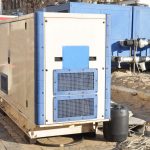
Emergency Generator Fuel Tanks & SPCC Plans
For hospitals, businesses, and critical infrastructure, emergency power systems are crucial for maintaining operations during power outages, which can be caused by severe weather or other unforeseen events. Central to these emergency systems are the fuel storage tanks, which must be managed effectively to ensure compliance with environmental regulations. Below we discuss important considerations… Read More »
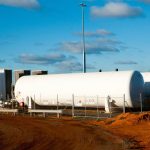
AST Regulations vs. UST Regulations
When it comes to storing hazardous substances, the type of storage tank you use matters—not just for efficiency and safety but also for compliance with state and federal regulations. Herbert Lutz & CO. understand the key differences between Aboveground Storage Tanks (ASTs) and Underground Storage Tanks (USTs) and can help industries and property owners… Read More »
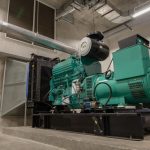
Understanding Federal UST Requirements for Emergency Power Systems
The maintenance and regulation of underground storage tanks (USTs) for emergency power systems are critical components for various types of establishments such as hospitals, data centers, and other mission-critical operations. The federal UST regulations under the Resource Conservation and Recovery Act (RCRA), overseen by the Environmental Protection Agency (EPA), set the benchmark for ensuring… Read More »

What You Need to Know About Emerging Fuels and Underground Storage Tanks (USTs)
In recent years, as the push toward more sustainable and environmentally friendly energy sources has grown, the variety of emerging fuels has seen a significant rise. As underground storage tanks (USTs) are key components in the distribution and storage of these fuels, it’s crucial to understand how they interact. Below is a summary of… Read More »
